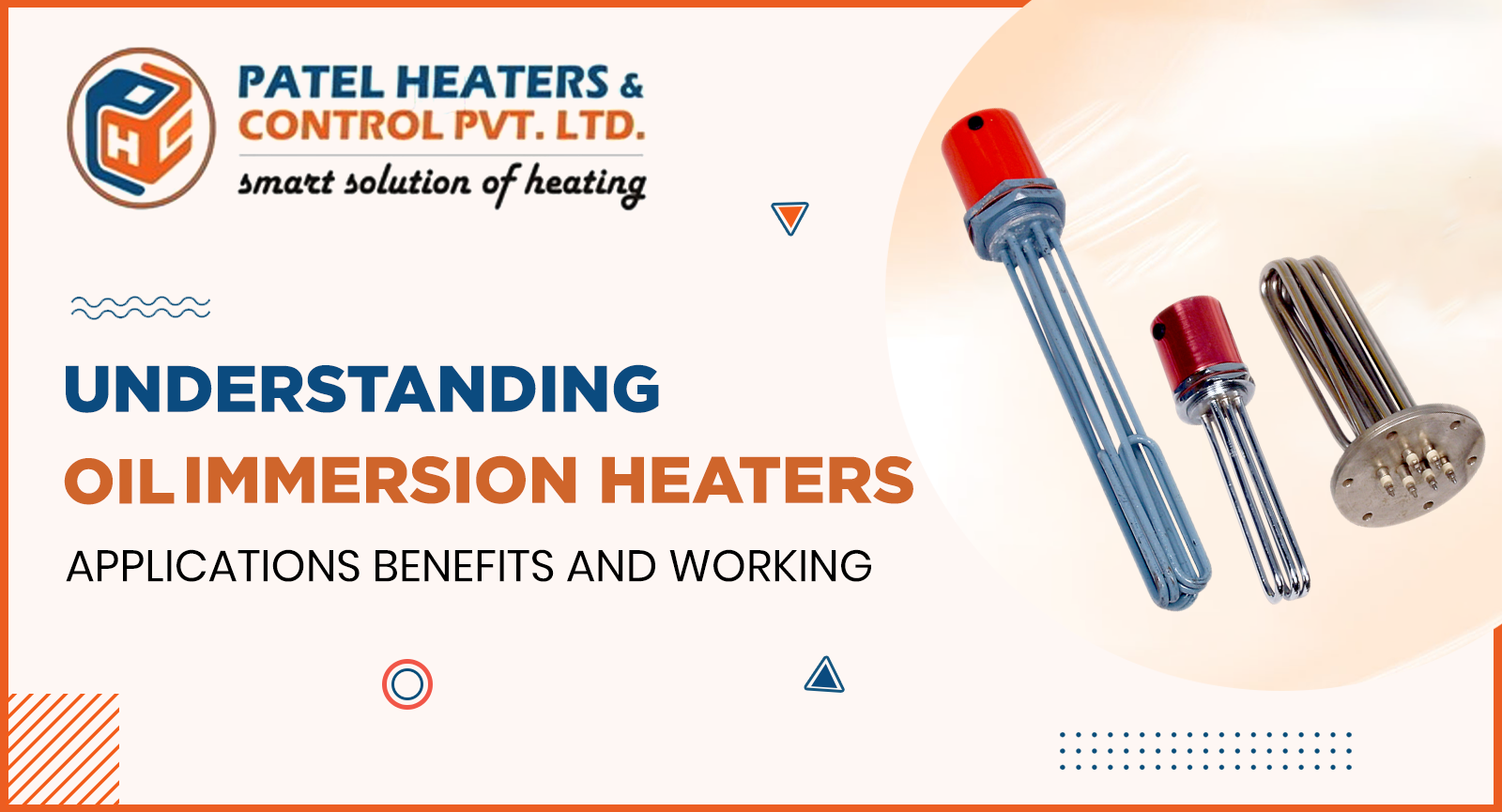Understanding Oil Immersion Heaters - Applications, Benefits and Working
Oil Immersion Heaters are utilized in a variety of sectors where oils or viscous fluids need to be heated with precise heat penetration control. Several brands are there in the market that design and manufacture immersion heater systems to meet today’s industrial requirements. Oil immersion heaters are meant to be installed in pipe bodies, tanks, or pressure vessels with typical pipe sizes.
How Does an Oil Immersion Heater Work?
A gas heated water tank has a burner beneath that helps to heat the water. In contrast, an oil immersion heater warms the oil immediately inside it. A heating element is immersed in the oil or liquid, and a powerful electric current flows through it, heating the liquid in contact with it. Compare it to your standard kitchen kettle, but on a bigger and slightly more sophisticated scale. The tank contains a thermostat, which helps to keep the water at a specified temperature.
Essentially, you get heated liquid or oil out of the tank when the influx of cold liquid from beneath the reservoir pushes the hot liquid out from the top of the tank with enough pressure to force it out of the cylinder. When hot water is heated, as in this example by the immersion element, it rises to the surface.
The immersion heater wiring will frequently incorporate an isolating switch where it connects to the mains electrical supply. While natural gas heaters are less costly, immersion heaters require less ventilation. However, attaching a timer to the tank will save money. This guarantees that oil or liquid is heated and maintained warm in the insulated tank.
Applications of Oil Immersion Heaters
Oil and gas Sector: Oil and gas refineries use these heaters to heat crude oil in storage tanks, preheat oil in pipelines, and maintain viscosity in processing units.
Chemical Sector: These heaters are used to heat viscous chemicals and sustain reaction temperatures in chemical reactors.
Lubricating Systems: Oil immersion heaters keep industrial machinery lubricating oil at the correct temperature for proper operation.
Industrial storage tanks: These heaters are used in storage tanks to maintain a minimum temperature to keep oil from hardening in cold areas.
Power Generation Plants: Immersion heaters heat transformer oil in power plants.
Oil Immersion Heater Benefits:
- Immersion heaters can control the exact temperature of oil, essential for industrial processes.
- Direct contact heating allows for rapid heating of huge amounts of oil.
- Compact design allows for easy installation in existing tanks or containers, with minimal space requirements.
- Oil immersion heaters are easy to use and maintain. They are made from corrosion-resistant materials such as Incoloy.
- These heaters use up to 20% less energy because they do not lose heat due to feedwater preheating, blowdown, or steam traps.
Conclusion
Oil immersion heaters are widely utilized in a variety of sectors, including residences. When dipped in a liquid such as water or oil, they instantly begin the heating process and continue until the user-specified temperature is not reached. Hopefully, this article will help you decide if an immersion heater is the best choice for your needs.
Patel Heaters
Patel Heaters and Control has immense expertise in the manufacturing of Industrial heaters and heating elements. We have been providing heating solutions to our clients since 1982.







